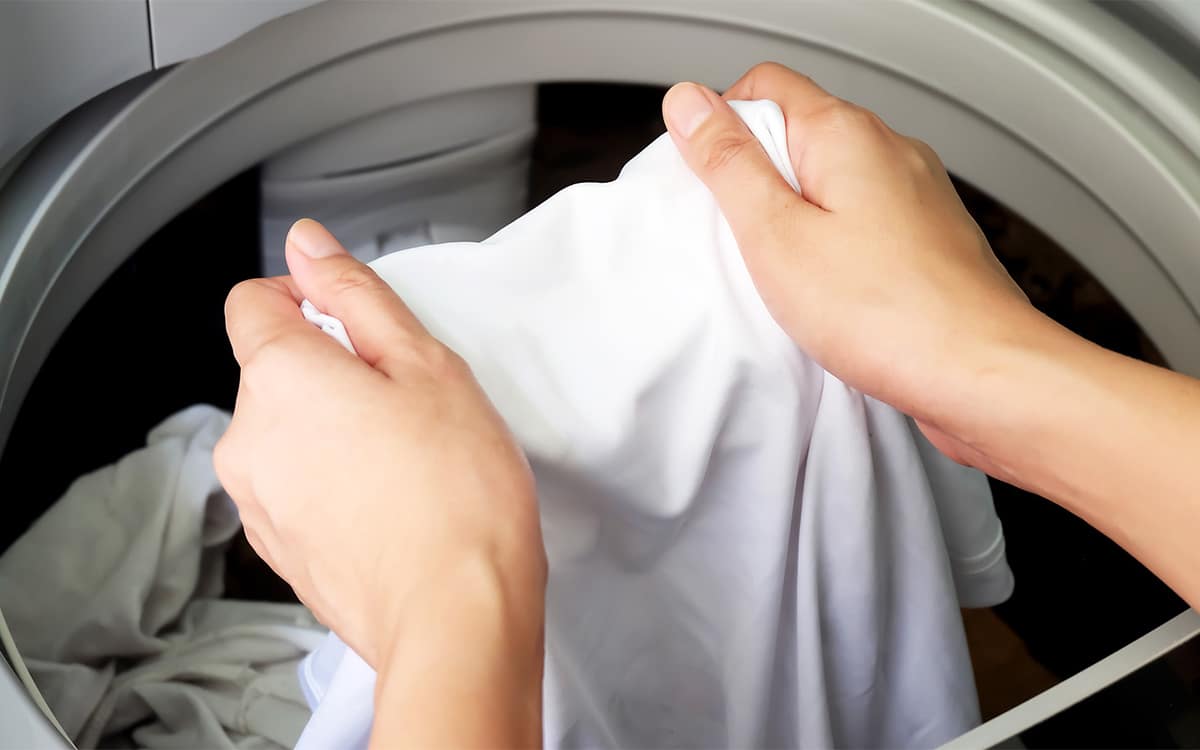There’s nothing worse than discovering that one of your trusty appliances has given up the ghost. Not only will you have to spend countless hundreds of pounds on repairs or replacements. You’ll also wonder just what might have caused the problem in the first place.
Very often, it’s not easy to tell when an appliance is damaged until it’s much too late. Especially in the case of washing machines. Unfortunately, washing machines are very prone to error, and it’s not always easy to understand why a specific one might have become faulty.
Find that you’re often unlucky when it comes to washing machines? Wondering why you’ve had to go through multiple new models in just a few short years? It’s a surprisingly common issue!
Want to know why all of your washing machines just keep breaking? You’re in luck. We asked our Reliant tech experts to find out some of the top causes of washing machine failure, so you can keep yours in tip-top shape! Let’s get right into it!
What Are Some Common Causes Of Washing Machine Failure?
To start off, let’s take a look at some of the common root causes that can lead to washing machine failure. This could help you to identify any potential problem points that might have proven problematic for some of your past washing machines!
Overloading
Part of what makes washing machines useful is how much they can do in a short space of time. You can load up the drum with all of your dirty laundry, and count on the appliance to refresh every last ounce of fabric.
The trouble is, we often forget that our washing machines do have their limits. It can be tempting to fill the drum up to its total capacity and to drop in that one last item. But, overfilling your washing machine can cause massive damage to the washing machine as a whole!
Make sure not to overload your washing machine’s drum. When the drum is overfull, it can put a significant strain on the motor. Over time, this could cause irreparable damage!
When you overfill the washing machine drum, it puts a significant strain on the central motor. The motor is responsible for spinning the drum itself, so when it’s damaged, it can prevent the washing machine from moving at all. And no spinning results in a totally unfinished clean!
Overfilling your washing machine also makes it tough for your clothes to move around during a cycle. This makes it impossible for them to agitate, so you’d simply end up pulling dirty clothes out of the drum!
Loose Items
We all know the horror of remembering we had something in our trouser pockets long after they’ve been loaded into the washing machine. However, this can do more than damage the items themselves. Small loose items tumbling around your washing machine can wreak absolute havoc!
Before you load your dishwasher, we would always recommend making a habit of double-checking pockets. Small items like keys, coins, and other loose items can find themselves lost deep within your washing machine. If unlucky, these items can also find themselves causing direct damage to important components, resulting in costly repairs.
Loose items can also gather in your washing machine’s drains, and may even get trapped. This could result in blockages that are difficult to resolve.
Hard Water
If you live in an area with a hard water supply, we would recommend that you take the correct precautions for the safety of your washing machine.
Hard water is defined by its high concentration of calcium and magnesium. While it’s generally harmless for the most part, it can very slowly cause untold damage to your washing machine if left totally unchecked. When hard water dries on a surface, the high concentration of calcium and magnesium is left behind. This results in watermarks and limescale. Over time, the calcium and magnesium deposits can grow and grow, as more is left behind. These deposits can cause blockages, or can even keep components from working.
Many washing machine owners overlook the impact of hard water. If not dealt with, the calcium and magnesium deposits of hard water can gather, and then cause blockages or otherwise hamper crucial components!
If you live in an area with a hard water supply, you’ll want to make sure to use detergents with plenty of water-softening properties.
Improper Installation
When you first receive a brand-new washing machine, you want to make sure it’s installed safely and securely. Improper installation can result in untold damage to countless components of the appliance. For instance, if your washing machine’s drain hoses are not properly installed, you could be met with a large puddle pooling underneath it!
When buying a washing machine, we strongly recommend contacting a professional to ensure it’s fully and safely installed. A plumber can really help to ensure your washing machine will be there to last!
You should also make sure that the chosen spot for your washing machine is just right. Uneven floors should be avoided because they can put a strain on the unit. Especially the drum. When the ground isn’t level, the drum can end up spinning off-centre! You should make sure your washing machine is on a flat and stable surface during operation. This ensures the unit does not travel during operation.
Too Much Detergent!
Much like with loading clothes into the drum, when you’re pouring your detergents into the dispenser drawer, it can be very tempting to add “A little bit more”. After all, more detergent would surely result in a more effective clean, right?
Unfortunately, overdosing on detergents can actually have a very negative impact on the function of the appliance. The most direct damage occurs to the dispenser drawer itself. If you pour too much detergent into the dispenser drawer, inevitably, some of it will be left behind.
When left too long, detergents can dry up, become very stubborn, and stick to the surface of the drawer. Over time, these pockets of left-over detergent can grow and grow, until they risk blocking the drawer entirely. These pockets of detergent can also become susceptible to bacteria and mould!
Too much detergent can slowly wreak havoc on your washing machine. Pockets of dried-up detergent can gather in all kinds of spots and impact function. Leftover suds can also be breeding grounds for bacteria!
Excess detergents that do get used within the wash cycle can end up lingering for much too long, and may not drain fully at the end of the cycle. Again, this can lead to pockets of detergent drying up on the inner surface of the washing machine!
Too many suds in your washing machine can also make it difficult for water to flow. In turn, this makes it much harder for your clothes to be washed.
Improper Maintenance
It’s important to check on the condition of your washing machine as often as you can. Improper maintenance and care can play a huge role in shortening the life of any appliance.
Don’t simply use your washing machine and then refuse to check on it between cycles. Don’t worry, you won’t have to dig out your toolkit. All you need to do is check over all of the vital components of the unit. Check that the drum is secure, can spin properly, and is not dirty. Check that the detergent drawer is free of built-up excess detergents.
Neglecting to check your washing machine periodically could cause you to miss out on important warning signs of failure!
How To Take Better Care Of A Washing Machine
Now that we’ve addressed some of the most common causes of washing machine errors, why don’t we find out some of the best ways to prevent them? Make a habit of some of these top practices, and your washing machine could last for years to come!
Fill It Up Just Right!
At this point, it should be abundantly clear that overloading your washing machine can cause damage. Whether in the central drum or the dispenser drawer, overloading can make it difficult for your washing machine to perform at its best.
To avoid overfilling your washing machine’s drum, we recommend keeping in mind the two-thirds rule. The drum should only ever be filled up to around two-thirds of capacity. If you can’t fit your hand into the drum, above the laundry load, then it is too full!
To check if your washing machine drum isn’t full, see if you can fit your hand in above the laundry. If not, it means the washing machine is likely too full.
And make sure to adhere to the fill-lines built into your washing machine’s dispenser drawers. These directly indicate just how much you can fill them up!

Don’t Leave Clothes In The Drum
We recommend emptying out your washing machine within an hour of the cycle finishing. This is not only more beneficial for your laundry but for the appliance itself. When damp and soggy clothes are left sitting around in the moist and warm drum, they can very quickly develop mould and bacteria. Not only will this cause your clothes to smell slightly odd, but it can cause damage to the washing machine.
Mould can run rampant in your washing machine if it does not get a chance to dry out. You don’t have to unload it right away, but we recommend leaving the washing machine’s door slightly ajar as soon as a cycle has finished.
Perform A Maintenance Wash
A maintenance wash is a cycle that occurs without loading the drum and is designed to provide the central drum and the drainage hose with a deep clean. It makes use of hot water and special solutions that are formulated to completely clean your washing machine, and clear it of any built-up mess that could otherwise clog the unit!
Generally, it’s best to perform a maintenance wash at least once a month. It’s quick and simple to do, and many modern washing machines actually come with pre-programmed maintenance wash cycles programmed into them!
Performing regular maintenance washes is a surefire way to extend the life of your washing machine exponentially!
Clean By Hand
Outside of performing a maintenance wash, we’d also recommend that you clean certain parts of your washing machine by hand, at least once a month. Don’t worry, it doesn’t involve too much! All you need is a wash rag and some warm, soapy water.
You’ll want to use this soapy water to scrub away at key parts of the unit, such as the central drum, and especially the detergent drawers. Check for pockets of dried-up detergent in your dispenser drawers, so that they don’t grow and hinder future dispensing.
We recommend also checking the washing machine’s door seals. These can very easily collect bits of dirt and dirty water and can be breeding grounds for mould and bacteria.
Finally, make sure to also dig out the filter, and clear away any lint, or any debris that might have come loose from your clothing.
What Happens If You Don’t Clean Your Washing Machine?
Not cleaning your washing machine does more than result in odd-smelling clothes. It can also do direct damage to the unit as a whole. Pockets of dirt and other messes that build up in your washing machine can easily become breeding grounds for all kinds of mould and bacteria. Over time, this mould and bacteria can directly attack key components of the unit!
Frequently Asked Questions
Why Do All My Washing Machines Keep Breaking?
There are a number of root causes for washing machine breakage. But, most of these causes have their roots in improper maintenance. You should be sure to never overfill your washing machine with laundry or detergents because excess can make it difficult for the unit to do its job! Make sure to also clean the unit as often as possible, to clear away built-up dirt and nasty deposits.
What Is The Most Common Washing Machine Failure?
One problem that often plagues washing machine users is blockages. When your washing machine’s drainage hose is blocked, it becomes difficult for water to leave the unit after a cycle. In turn, this results in water pooling in the drum. This can be troublesome with time. All of that excess moisture in the warm environment of the washing machine drum can quickly lead to bacteria and mould.






0 Comments